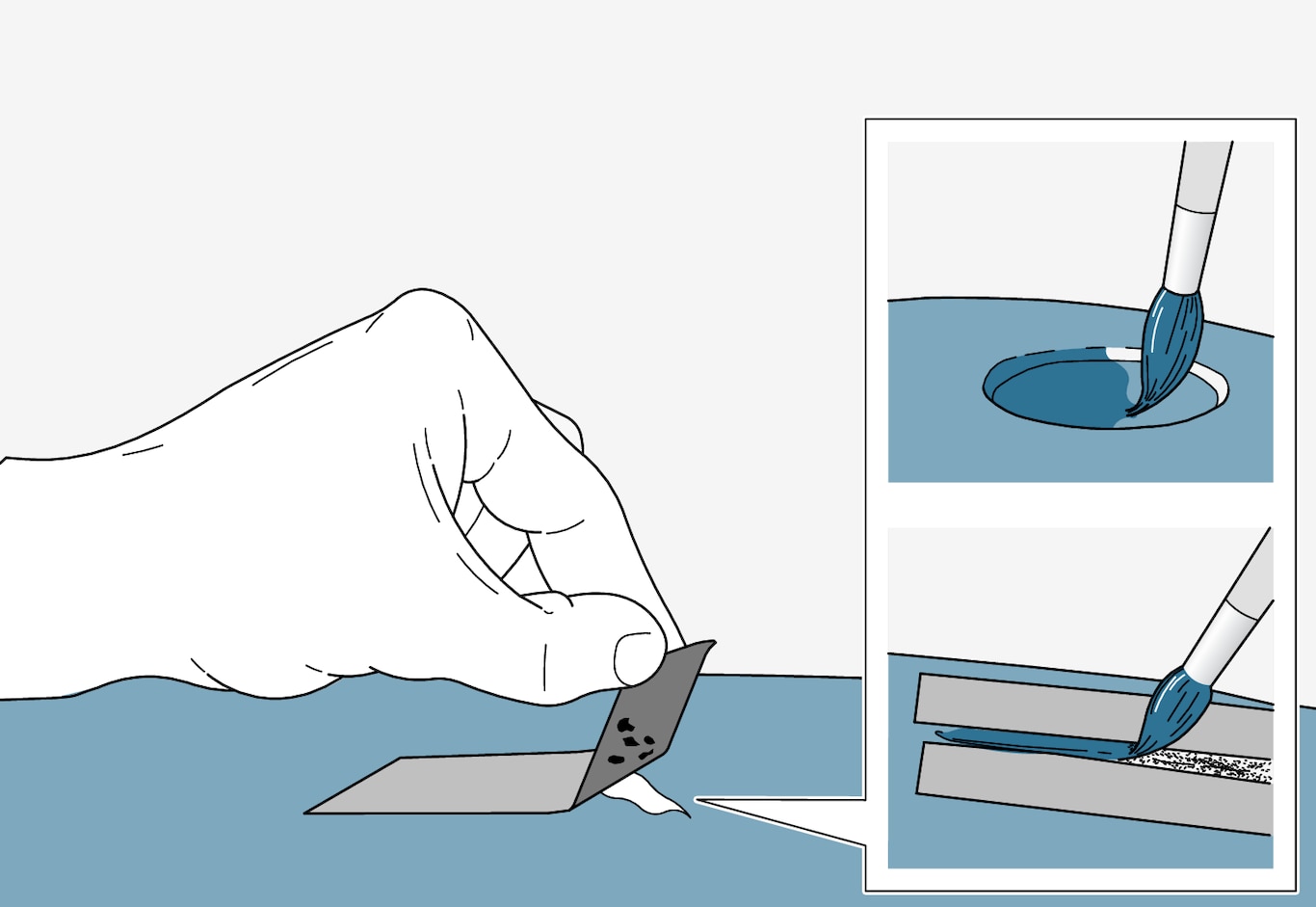To avoid the onset of rust, damaged paintwork should be rectified immediately.
Note
When paint is repaired the surface must be clean and dry. The temperature of the surface should be at least 15 °C (59 °F).
Materials that may be needed
- Primer – a special adhesive primer in a spray can is available for e.g. plastic-coated bumpers.
- Basecoat and clearcoat - available in spray cans or as touch-up pens/sticks1.
- Masking tape.
- Fine sand paper.
Applying touch-up paint to the damaged surface

If the damage has not reached down to the metal, the touch-up paint can be applied directly after the surface has been cleaned.
Apply a piece of masking tape over the damaged surface. Then remove the tape to remove any loose paint.
If the damage is down to the metal, use of a primer is appropriate. In the event of damage to a plastic surface, an adhesive primer should be used to give better results - spray into the lid of the spray can and brush on thinly.
Before painting, gentle polishing using a very fine polishing agent may be carried out locally if required (e.g. if there are any uneven edges). The surface is thoroughly cleaned (grease and salt should be removed) and left to dry.
Stir the primer well and apply using a fine brush, a matchstick or similar. Finish off with a basecoat and clearcoat once the primer has dried.
For scratches, implement the same procedure but mask around the damaged area to protect the undamaged paintwork.
Touch-up pens and spray paints for touching up paintwork are available from Volvo dealers.
Note
If the stone chip has not penetrated down to the meal and an undamaged layer of paint remains in place, fill in with base coat and clear coat as soon as the surface has been cleaned.